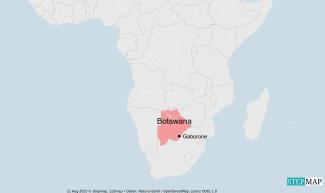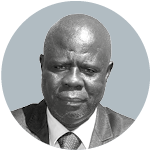Entrepreneurship
How Africa’s youth is shaping climate solutions
 StepMap
StepMap
In Botswana, 24-year-old Freddie Rakwadi works from his grandmother’s garden in the country’s capital Gaborone. The young man developed Fermavita, a liquid fertiliser made from fermented organic compost. His start-up BioCrude Innovations has tested the product on tomato plants, proving it effective under harsh weather conditions. Fermavita also serves as a soil enhancer.
Rakwadi aims to provide a cheaper alternative to imported fertilisers, which many smallholders can no longer afford. “A small field can be fed with just 250 millilitres diluted in 75 litres of water,” Rakwadi explains. “It’s accessible, and it works – that’s what matters most to the communities we serve.” By offering a local solution, he addresses overlapping challenges such as food insecurity, land degradation and climate change.
Rakwadi’s story illustrates a shift that is taking place all over Africa: young people increasingly try their best to tackle climate change using whatever is locally available. At the Youth Entrepreneurship for the Future of Food and Agriculture (YEFFA) forum that took place in August in Gaborone, Botswana, Rakwadi stressed the need for collaboration between youth, governments and civil society. “Supporting innovation and entrepreneurship is how we build stronger economies and address systemic issues like policy, finance and market access,” he said.
YEFFA is a youth-focused initiative that aims to empower young entrepreneurs across Africa to create jobs and support innovations in the agri-food sector. It forms part of a five-year programme which is implemented by the pan-African organisation AGRA and funded with $ 350 million across multiple African countries. The programme seeks to create 1.5 million work opportunities for young people in agri-food systems by strengthening innovation and mobilising support for the public and private sector.
Jeremiah Rogito, expert for soil health and climate at AGRA, says bringing together voices of the youth ahead of international forums such as the UN climate summit (COP30) in Brazil in November is crucial. “We are just five years away from the SDG deadline. Youth need to speak with one voice going into COP30 because this is our moment to be heard”, he says.
YEFFA was hosted by Sustain267, a civil-society organisation led by climate justice advocate Pato Kelesitse, which also organises Botswana’s Local Conference of Youth on Climate Change (LCOY). This year, discussions at LCOY Botswana focused on developing a youth position on how a just transition can look like. The position is to be presented at COP30 in Brazil in November.
The initiatives demonstrate how disadvantaged youth can interconnect and drive practical climate solutions. But they also reveal the structural barriers – limited funding, weak policy support and lack of visibility – that keep many ideas from scaling. Whether local experiments like Rakwadi’s start-up can grow into continent-wide change will depend on whether governments and institutions back Africa’s young innovators not only with recognition, but with sustained investment.
Lungelo Ndhlovu is a freelance journalist based in Bulawayo, Zimbabwe.
ndlovu.lungelo@gmail.com


